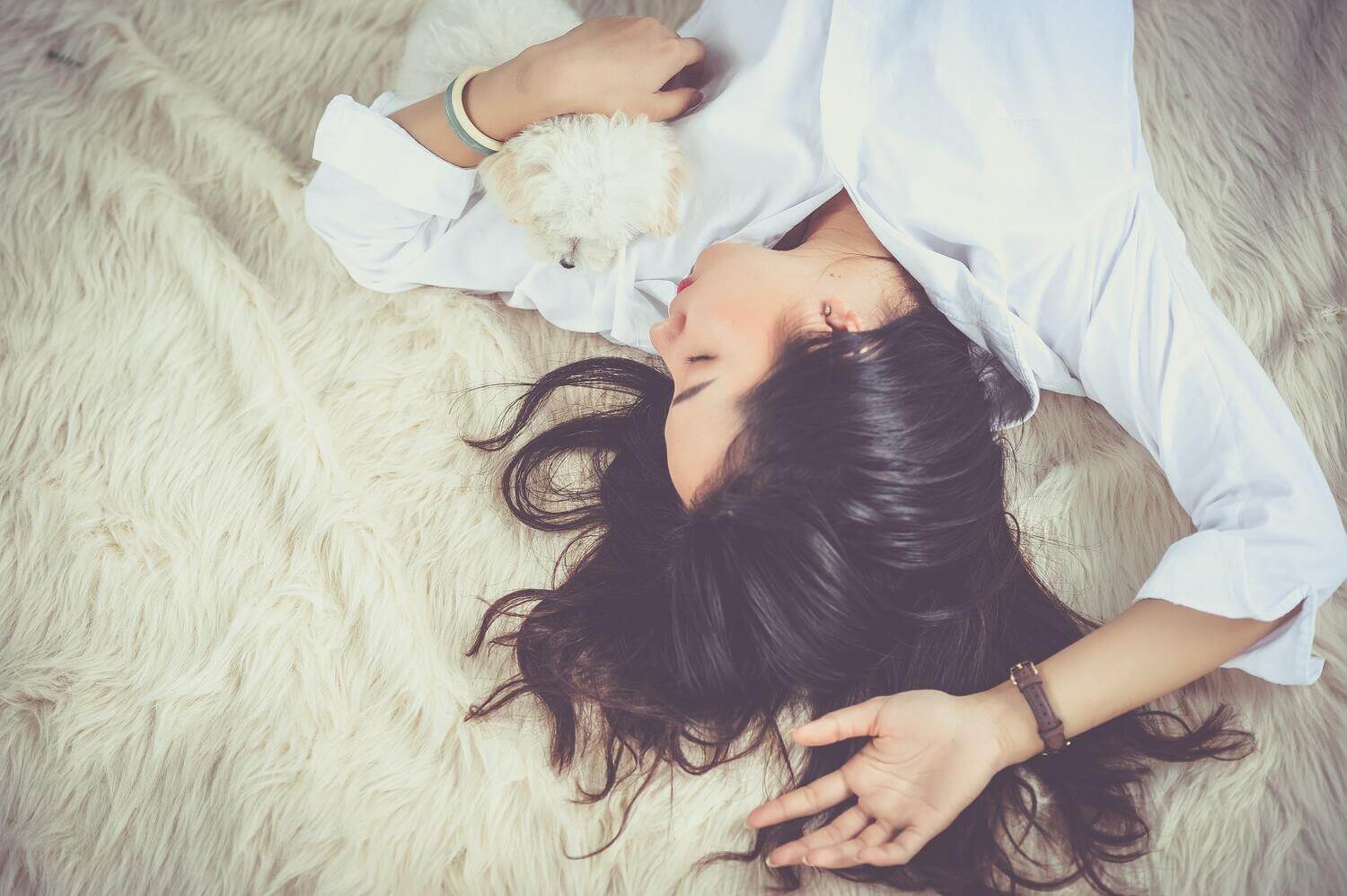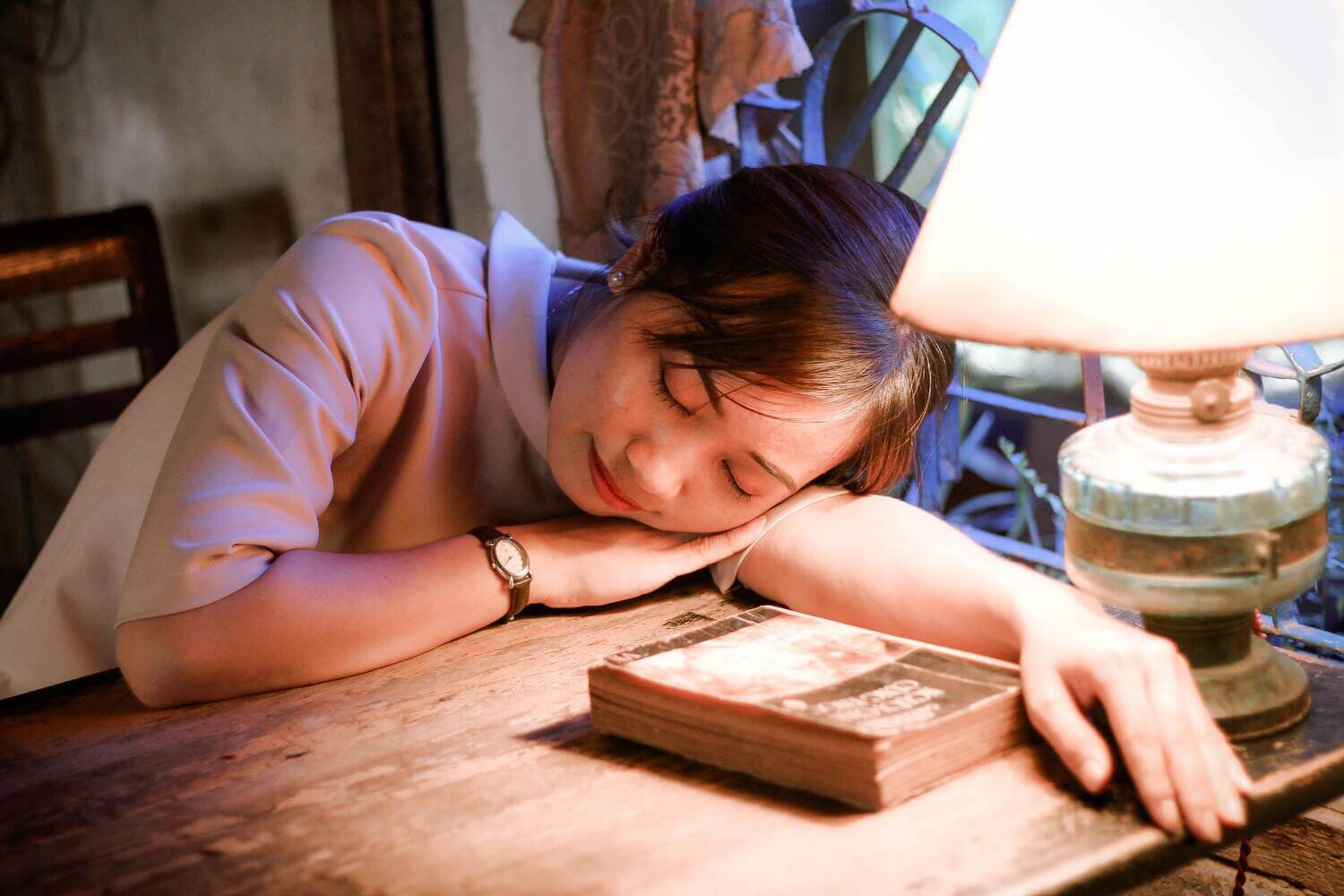It's 10 pm. You're in bed, trying to fall asleep. But your mind won't stop racing. You start to feel anxious, and your heart starts to race. This is nighttime anxiety, and it's a very common problem. Nighttime anxiety is often linked to anxiety disorders. It can also be caused by stress, worry, or other factors. The good news is that there are many things you can do to ease nighttime anxiety and get a good night's sleep. Keep reading to learn more.
How Does Anxiety Affect Sleep?
According to the National Sleep Foundation, anxiety can cause racing thoughts, irritability, and restlessness, making it difficult to fall asleep. Furthermore, anxiety can also lead to recurrent nightmares and intrusive thoughts, which can disrupt sleep. In addition, people who suffer from anxiety may also have difficulty sleeping, as they are constantly on edge and easily awakened by external stimuli. As a result, anxiety can significantly impact sleep quality and quantity.
What Are The Types Of Anxiety Disorders?
People with anxiety disorders often experience other mental health problems like depression. According to the Anxiety and Depression Association of America, almost 50% of Americans who experience depression also suffer from an anxiety disorder. There are many types of anxiety disorders, each with a distinct set of symptoms. So, let’s find out about these anxiety disorders.
- Generalized anxiety disorder (GAD) is characterized by excessive worry and stress that interferes with daily life.
- Panic disorder is characterized by periodic episodes of intense fear and physical symptoms such as racing heart and shortness of breath.
- Social anxiety disorder is marked by extreme self-consciousness and fear of social situations.
- Specific phobias are irrational fears of specific objects or situations.
- Obsessive-compulsive disorder (OCD) is characterized by intrusive thoughts and repetitive behaviors.
- Post-traumatic stress disorder (PTSD) is caused by exposure to traumatic events such as natural disasters, violence, or accidents.
While each type of anxiety disorder is unique, all are treatable with professional help and the right medications prescribed by doctors. If you or someone you know is experiencing anxiety symptoms, please seek help from a qualified mental health professional.

Symptoms of Sleep Anxiety
When you can’t sleep as a result of anxiety, you are bound to experience a change in behavior, such as
- Feeling irritable
- Restlessness
- Nervousness
- Fearful of impending danger or trouble
- Feeling overwhelmed
You could also experience nighttime anxiety effects physically before going to bed. They include:
- Palpitation
- Digestive problems
- Fast breathing
- Tensed muscles
- Profuse sweating
Also, many sufferers of anxiety insomnia have regular nocturnal panic attacks. A panic attack occurs when one experiences a sudden fearful feeling. They mostly happen at night, and they often wake you from sleep.
How to Cope with Nighttime Anxiety?
While anxiety can have a major impact on sleep, there are steps that can be taken to lessen the effects.
Practice relaxation techniques:
To combat nighttime anxiety, you can start yoga and nighttime meditation. However, always learn and practice these relaxation techniques during the day so as not to put yourself under much pressure before bedtime.
These relaxation techniques will make you more relaxed during the day. It may also help you to sleep better at night, and you can drink some nice herbal tea before turning in. Herbal tea is one of the drinks that will help you sleep better, and it may also help you sleep easier.
Have a sleep routine:
Going to bed and waking up around the same time daily conditions the body to adapt to the routine. However, rising at odd periods could interrupt that culture, affecting your night’s sleep. Be sure to have a sleep routine.
Anxiety and sleep share quite a delicate relationship; if sleep is interrupted, it could worsen your anxiety problems. So it is important to sleep and wake up timely.
Take out some time to think about how your day went before bedtime:
You don’t have to get in bed for the first time and start thinking about how your day went. Try to do that before retiring to bed, or better yet, in the morning. Nighttime anxiety can take root with an influx of thoughts in bed.
If you have tasks to do the following day, write a to-do list before your bedtime. And finally, avoid doing anything that could be anxiety-inducing before bedtime.
Try to preserve your relaxed state until you lay down to sleep.
Screen time? Scratch that:
Of course, you should know that smartphones and other screen devices affect your sleep. Researchers indicate that the blue light emanating from most screen devices has the capability of interrupting the circadian rhythms of the body. Thus, being in bed with any screen device could worsen anxiety insomnia.
This interruption may make falling asleep difficult. So, 30 minutes before bedtime, ensure you put away your smartphone and other screen devices. It will help you sleep better and faster.

Cut down on your caffeine and alcohol intake:
Taking a glass of alcoholic wine before bedtime isn’t nighttime anxiety friendly. The sleep that mostly occurs after an alcoholic drink is usually disrupted and somewhat light. You don’t want such inconsistent sleep patterns as they could leave you vulnerable to nighttime anxiety problems. This is also the case with the caffeinated beverages. Caffeine can stay in your system for many hours. So, when it is evening, avoid it.
Try to occupy yourself with other relaxing activities whenever you think about an emotional or anxiety-inducing issue:
Thinking and worrying over problems is the core of anxiety triggers. Anxiety insomnia thrives with worrisome thoughts. Thus, whenever you think about them, try getting out of bed and occupying yourself with activities such as reading a book or doing a relaxing yoga session.
Whether you are an anxiety patient or not, you should always be watchful of how you worry and stress over things and issues. Being mentally stable is also dependent on a very healthy sleep routine.
You could try all these methods to combat anxiety. However, if it appears to be getting out of your control, be sure to see a doctor.
Read more:















